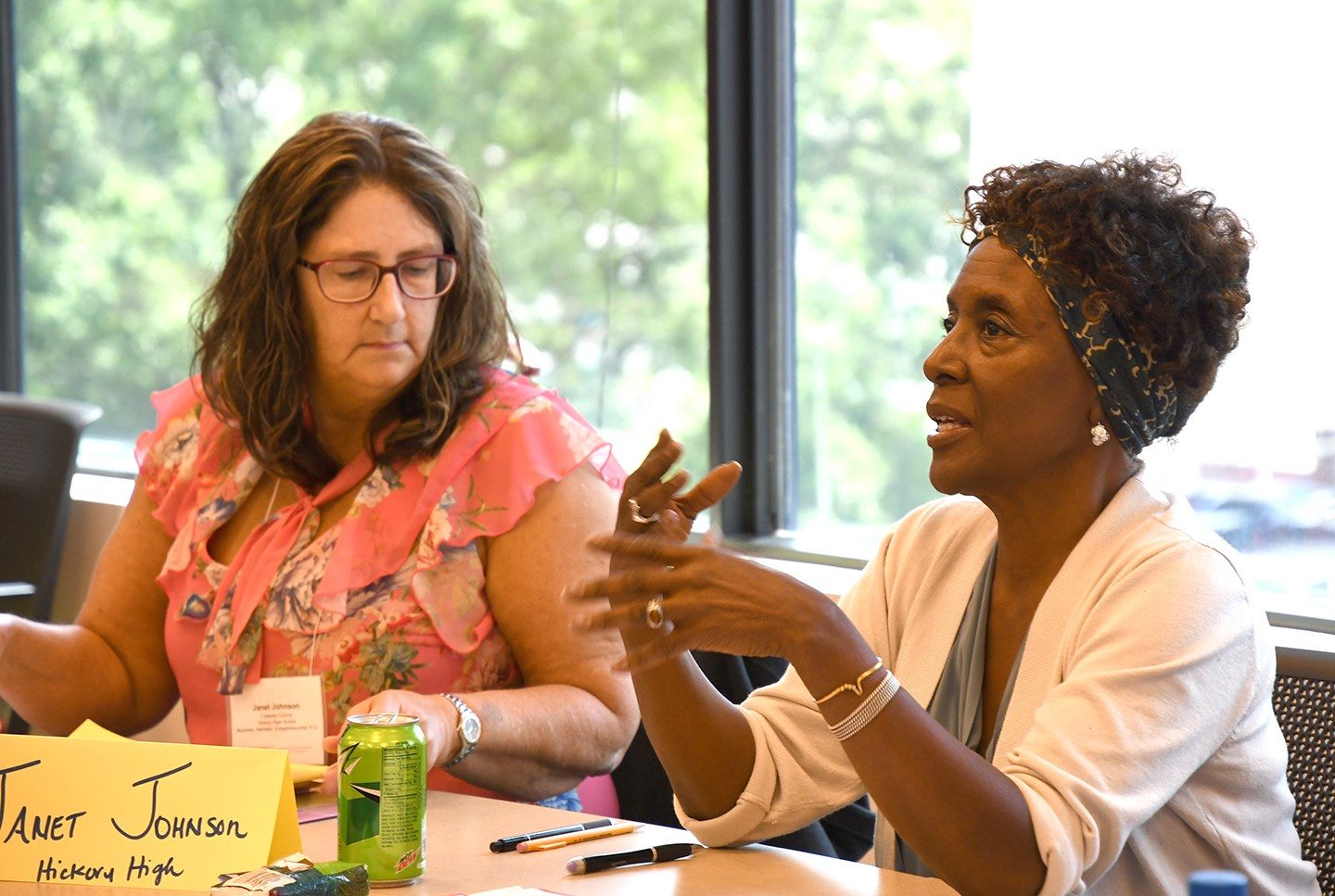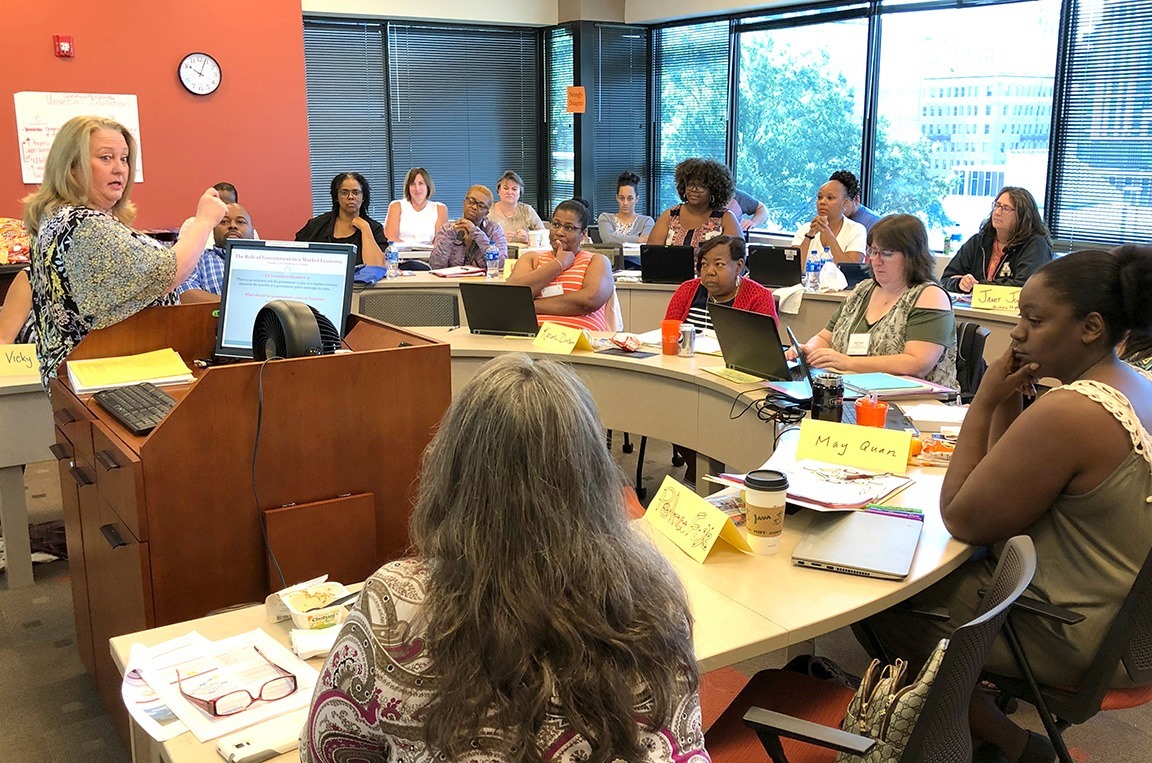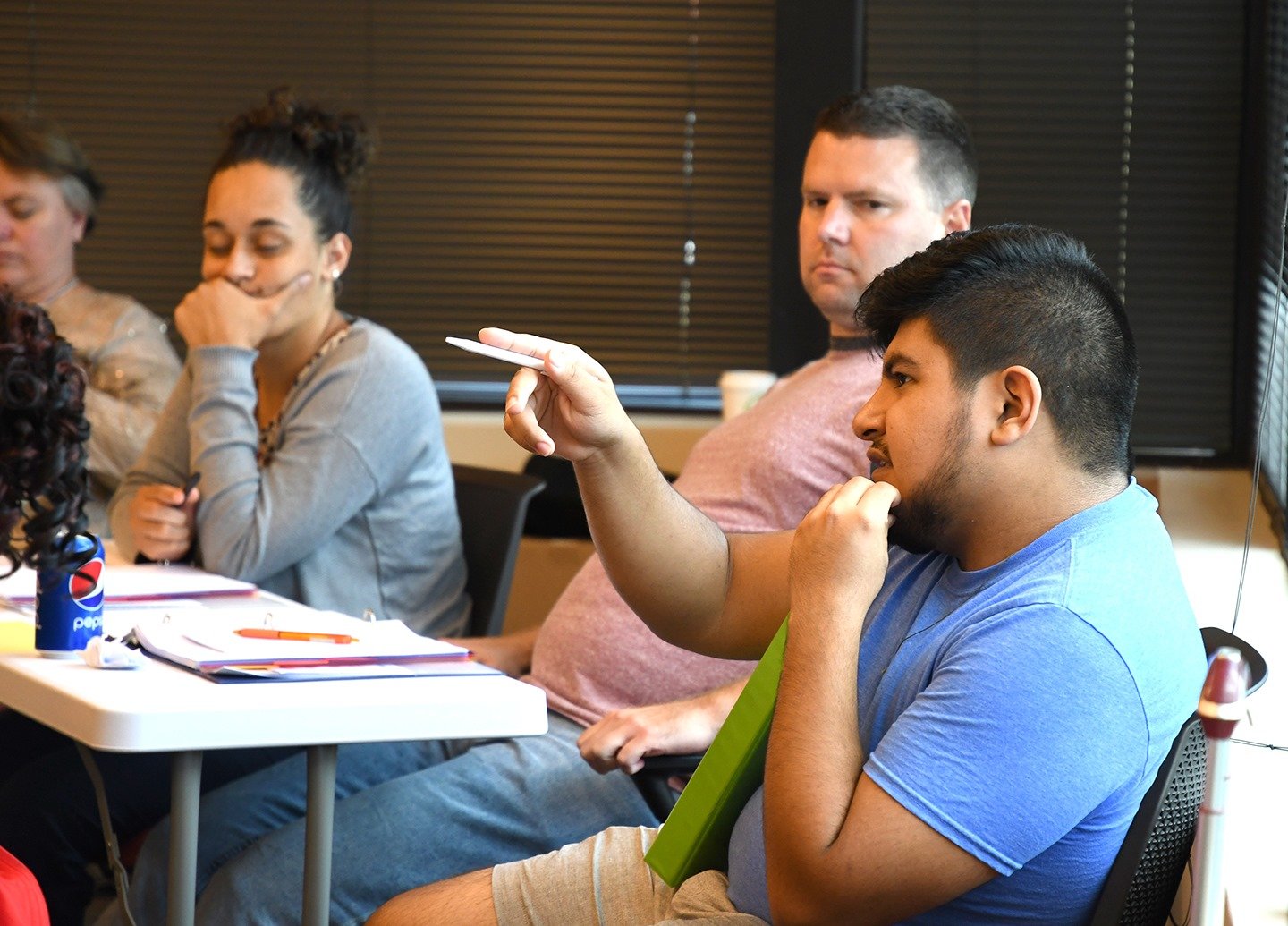This week, Campbell Business set up shop at the Raleigh campus to host its second annual Economics for Educators summer program. Grounded in research-based instructional practices, the free, hands-on professional development program is designed to equip K-12 teachers with the knowledge and pedagogical best practices needed to effectively teach economics in an empowering way.
Twenty-five educators from 16 counties are in attendance this week to learn how to translate economics content into accessible lessons. Topics include microeconomics, macroeconomics and international economics, and instructors will utilize field-tested lesson plans that can be easily applied in the classroom. Their goal is to help students develop into critical thinkers who make well-informed economic decisions.
This summer’s institute is even more important in light of the yearlong economics and personal finance course now mandatory for students across the state. North Carolina recently became the 20th state in the nation to require students to complete a full-credit course in economics and financial literacy.
 Dr. Cheryl Ayers, co-director of the Center for Economic Education at Virginia Tech, is both the instructor and creator of the much-needed Economics for Educators professional development program. Ayers spent the better part of ten years training teachers across Virginia in economic education, before taking her course on the road. Her program condenses a semester’s worth of knowledge and pedagogy into five days of intensive teacher training.
Dr. Cheryl Ayers, co-director of the Center for Economic Education at Virginia Tech, is both the instructor and creator of the much-needed Economics for Educators professional development program. Ayers spent the better part of ten years training teachers across Virginia in economic education, before taking her course on the road. Her program condenses a semester’s worth of knowledge and pedagogy into five days of intensive teacher training.
“Research suggests that many preservice and even veteran teachers do not have the content and pedagogical knowledge to make economics relevant and accessible to high school students in a way that empowers their daily decision-making and participation in our global economy,” said Ayers. “The purpose of this course is to change that.”

Sandy Wheat, executive director of the North Carolina Council on Economic Education, was on hand Thursday to answer teachers’ questions about the new law and provide resources they can take back to their school districts.
“Partnerships with existing literacy programs are important, and we are looking forward to working with Campbell Business’ Center for Financial Literacy and Economic Education in the future,” said Wheat. “Centers like these will help close a gap in our economics and personal finance programming in the Sandhills region of our state.”
“It has been wonderful to watch the successful implementation of this unique initiatve in Raleigh,” said Campbell Business Associate Dean for External Relations and Professor of Business Dr. Shahriar Mostashari. “It’s thanks to the sponsorship of several departments, alumni-owned businesses and University-wide support that this interdisciplinary program is in its second year.”
Teachers in attendance will receive student-centered instructional resources for teaching economics, including a virtual economics flash drive ($160 value) that contains more than 1,400 K-12 activity-based lessons on economics, personal finance and entrepreneurship. They will also receive a certificate of completion for 40 hours of professional development.
From the Educators
“We have a great cohort here. Even if economics is not your core competency, the way Dr. Ayers breaks it down even a fifth grader could understand it. I’ll leave with a healthier understanding of how to teach economics and motivation to train other educators to do the same.”
— Jaqueline Mingo, Guilford County Schools
“Economics is a big, scary word to so many people who don’t understand it. My biggest takeaway as a career and technical educator who teaches different subjects is that this course is for every teacher of every discipline. The principles of economics can apply to every course I teach, whether that’s Adobe workshops or fashion merchandizing classes. I love that I could attend this course in the summer, so that I can take this knowledge, these strategies and this real-world application back with me when the semester starts.”
— Angela Cusaac, Teacher of the Year, Vance County Schools
“I have now learned how to apply economics to ELA, math, science and classroom management. Imagine if I could discuss my students’ tantrums with them in terms of opportunity cost and what they’re missing out on by wasting class time. I’m so excited to go back to work next week. I’ve been going home and talking to my husband about supply and demand.”
— Petrice Fox, Cumberland County Schools
“I’ve been teaching for 17 years, but even as a veteran teacher, there’s always room to learn different ways of teaching what you teach. With the curriculum changes coming next year, it’s really important to really master economics and make more room for depth in the content. This is the most enjoyable workshop I’ve attended. There’s a lot of interaction and modeling of classroom techniques.”
— Brian Jones, Guilford County Schools
“The engaging activities I’ll take back with me are going to be very useful. I thought I’d attend to get a head start on how the curriculum is going to change and update myself on the latest pedagogy. Every day I’ve had an aha moment and every day I’ve learned a different way to introduce a concept to my class. Everybody’s been so welcoming and treated us like part of the Campbell community.”
— Suzanne Lantzy, Orange County Schools.
“I just finished taking micro and macro economics myself, and to be honest I didn’t retain much. If I had had to teach this subject at the high school level, I wouldn’t have been able to teach it effectively and make it translate to the real world. Now, I feel like I understand more thoroughly everything that my professors talked about. I can visualize how the economy moves and lives and thrives.”
— Jorge Jimenez Martinez, History major



